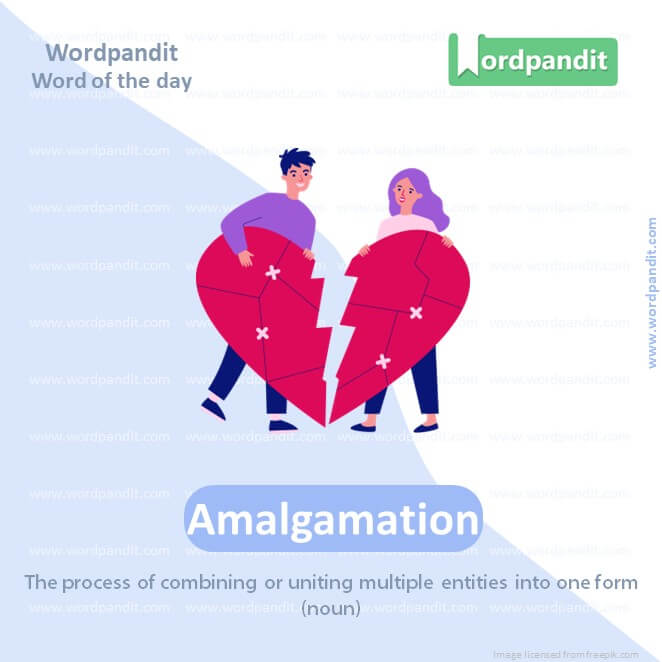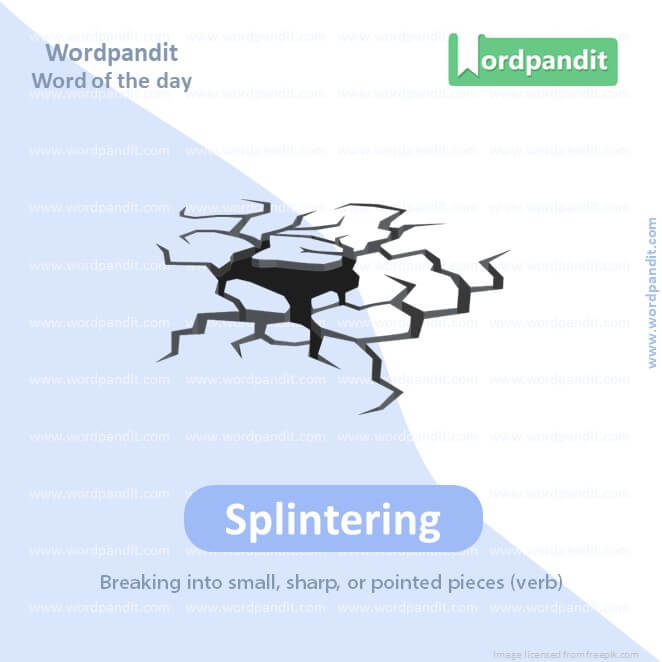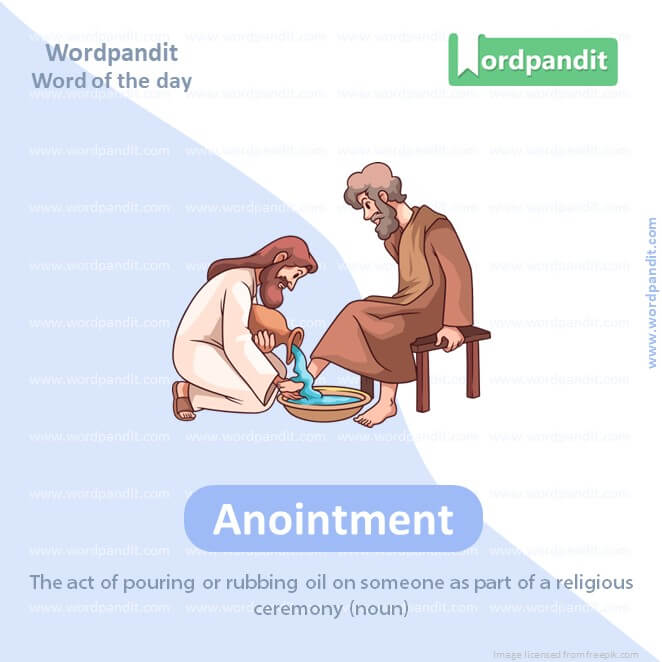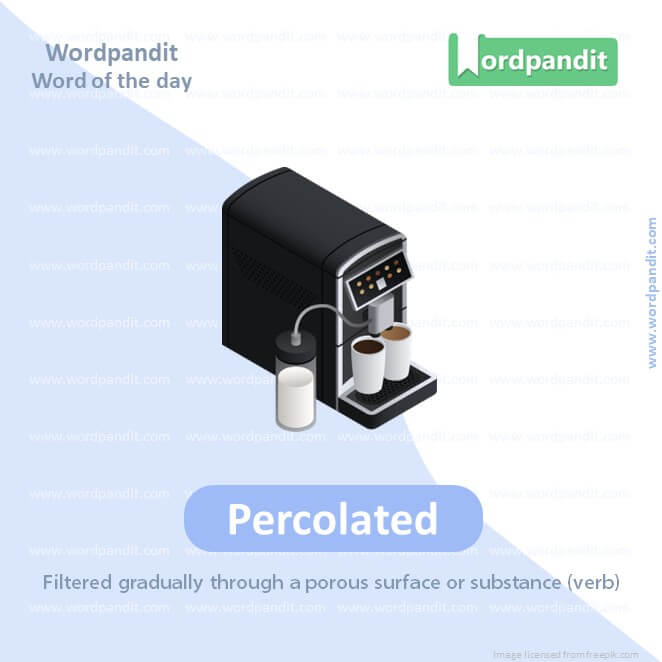Daily Vocabulary Words: Enhance Your Lexicon with Leading Newspapers & Publications
Welcome to the Daily Vocabulary section at Wordpandit!
Our mission is straightforward: to bring you essential vocabulary words featured in top newspapers and publications worldwide. By focusing on words you’ll encounter in renowned sources, we aim to help you enhance your vocabulary effectively and practically.
Our selection includes words from:
– The New York Times
– The Washington Post
– Scientific American
– BBC
– The Guardian
– Psychology Today
– Wall Street Journal
– The Economist
– The Hindu
– The Times of India
– The Economic Times
– Hindustan Times
– Live Mint
– The Indian Express
– And many more.
We are committed to your vocabulary development. Simply visit this section regularly and explore the daily posts. This is your go-to repository for commonly used words, providing significant practical benefits by familiarizing you with vocabulary from the leading publications listed above.
Make it a habit to visit our website daily and expand your lexicon with words from top newspapers and publications.
WORD-1: Empirically
CONTEXT: The BJP would have hoped for the strike rate to continue, but the Congress seems to have won more than one in every four seats this time in such contests. While it may be difficult to empirically establish Rahul Gandhi’s role in the turnaround of his party, he must be credited for a nationwide mobilisation through the Bharat Jodo Yatra, settling the party’s leadership question with Mallikarjun Kharge becoming the Congress president, giving the Congress’s ideological line some clarity and centering the party’s campaign on economic and social justice.
SOURCE: Hindustan Times
EXPLANATORY PARAGRAPH: Imagine if someone told you that a certain type of candy makes you jump higher. Instead of just believing them, you decide to try eating the candy and jumping to see if it’s true. When you check something by actually trying it or seeing it happen, that’s called “empirically.” It means learning by seeing or experiencing things yourself.
MEANING: Based on observations or experience rather than theory or pure logic (adverb).
PRONUNCIATION: em-PIR-ih-cul-lee
SYNONYMS: observably, experimentally, practically, factually, provably
USAGE EXAMPLES:
1. The theory was empirically tested through numerous experiments.
2. Empirically, we found that the new teaching method improved student performance.
3. She prefers to understand the world empirically rather than theoretically.
4. Results are often empirically derived in scientific fields.

WORD-2: Amalgamation
CONTEXT: Community becomes an amalgamation of individuals, with otherwise different capacities to access and use services, individuals with different potentials in converting an ecosystem service or natural resource into valuable life pursuits.
SOURCE: The Hindu
EXPLANATORY PARAGRAPH: Imagine taking two different colors of clay—red and blue—and mixing them together until you get purple. This mixing together to make something new is called “amalgamation.” It’s when you combine different things to create a single thing.
MEANING: The process of combining or uniting multiple entities into one form (noun).
PRONUNCIATION: uh-mal-guh-MAY-shun
SYNONYMS: combination, merger, blend, fusion, integration
USAGE EXAMPLES:
1. The new company is an amalgamation of several smaller businesses.
2. His style of music is an interesting amalgamation of jazz and classical.
3. The festival was an amalgamation of different cultural performances.
4. Amalgamation of the two departments created a more efficient workflow.

WORD-3: Splintering
CONTEXT: The DMK-led alliance in Tamil Nadu secured all the 39 seats (plus one in Puducherry), which could be explained by some as the consequence of the splintering of the BJP-AIADMK alliance.
SOURCE: The Hindu
EXPLANATORY PARAGRAPH: Imagine you’re holding a big stick, and you break it into many small, sharp pieces. These tiny pieces are called “splinters,” and the action is called “splintering.” It’s when something breaks into small, sharp, skinny pieces.
MEANING: Breaking into small, sharp, or pointed pieces (verb).
PRONUNCIATION: SPLIN-ter-ing
SYNONYMS: fragmenting, shattering, breaking, cracking, shivering
USAGE EXAMPLES:
1. The wooden plank started splintering as it aged.
2. The organization is splintering into smaller groups.
3. He dropped the vase, and it splintered into many pieces.
4. Political parties often risk splintering over major disagreements.
WORD-4: Suzerainty
CONTEXT: The BJP’s emphasis on Hindutva, jingoism, social harmony between the privileged and the marginalised, and status quo over social justice, and the suzerainty of its one leader over that of a coalition of parties in power, rendered the DMK-led alliance a natural ideological adversary of it.
SOURCE: The Hindu
EXPLANATORY PARAGRAPH: Imagine if you had a big brother who let you decide what games to play in your room, but outside of the room, he makes all the big decisions. That’s kind of like “suzerainty.” It’s when one country controls another country but still lets the other country manage its own daily things.
MEANING: The dominion or authority of one state over another state that is internally autonomous (noun).
PRONUNCIATION: SOOZ-er-in-tee
SYNONYMS: dominion, rule, sovereignty, control, authority
USAGE EXAMPLES:
1. The region was under the suzerainty of a larger empire.
2. Historical documents revealed the suzerainty terms agreed upon.
3. They acknowledged the suzerainty of the conquering king.
4. Suzerainty allowed the state some degree of internal governance.

WORD-5: Anointment
CONTEXT: The party imagined the election less as a contest and more as an anointment. While the chattering classes were focused on whether the BJP would win 240 seats or 340 seats, the average voter we spoke to understood the real implications of total control and this raised anxieties about democratic erosion.
SOURCE: The Hindu
EXPLANATORY PARAGRAPH: Imagine during a special ceremony, someone gently rubs or pours oil on another person’s head because they are being given a special role, like becoming a king or queen. That action is called “anointment.” It’s a special way to show that someone is chosen for an important job.
MEANING: The act of pouring or rubbing oil on someone as part of a religious ceremony (noun).
PRONUNCIATION: uh-NOINT-ment
SYNONYMS: consecration, blessing, sanctification, coronation, ordination
USAGE EXAMPLES:
1. The anointment of the new king was a grand ceremony.
2. She received anointment during her initiation into the priesthood.
3. The ancient practice of anointment is symbolic in many cultures.
4. Anointment often signifies divine selection or approval.

WORD-6: Unbridled
CONTEXT: Even those who were committed to voting for Mr. Modi and the BJP expressed a discomfort with the unbridled misuse of power. The election was framed by the BJP as a fait accompli.
SOURCE: The Hindu
EXPLANATORY PARAGRAPH: Imagine if you saw a horse running really fast and nothing was slowing it down because it had no bridle. When we say “unbridled,” we mean something that’s not controlled or held back, like the horse running freely.
MEANING: Free from any form of control, and thus acting without restraint
(adjective).
PRONUNCIATION: un-BRY-duld
SYNONYMS: unrestrained, unchecked, uncontrolled, wild, rampant
USAGE EXAMPLES:
1. He expressed unbridled joy at the good news.
2. The debate was full of unbridled enthusiasm.
3. Unbridled growth of weeds can ruin a garden.
4. Her imagination is unbridled and vivid.

WORD-7: Percolated
CONTEXT: The debate on electronic voting machine (EVM) manipulation, regardless of the truth, had percolated into the chatter in the rural hinterlands.
SOURCE: The Hindu
EXPLANATORY PARAGRAPH: Imagine you pour water over a pile of ground coffee, and slowly the water drips through to the bottom, picking up the coffee flavor. This slow process of dripping through is called “percolating.” It’s often used to talk about coffee, but it can also mean when an idea or feeling slowly starts to spread or take effect.
MEANING: Filtered gradually through a porous surface or substance (verb).
PRONUNCIATION: PUR-kuh-lay-ted
SYNONYMS: filtered, seeped, infused, brewed, trickled
USAGE EXAMPLES:
1. The new policy ideas percolated through the various levels of government.
2. As the coffee percolated, a rich aroma filled the kitchen.
3. The concept slowly percolated into their discussions.
4. News of the change percolated through the company.
WORD-8: Succumbed
CONTEXT: My own grandmother, who was not a smoker, but consumed paan with tobacco for most of her life, succumbed to lung cancer in her seventies.
SOURCE: Hindustan Times
EXPLANATORY PARAGRAPH: Imagine trying to hold up a heavy backpack for a long time, and finally, you just can’t hold it anymore and let it drop. When you can’t resist or stand against something any longer, that’s called “succumbing.” It’s like giving in because you can’t keep resisting.
MEANING: Failed to resist pressure, temptation, or some other negative force (verb).
PRONUNCIATION: suh-KUMD
SYNONYMS: yielded, gave in, capitulated, succumbed, surrendered
USAGE EXAMPLES:
1. He finally succumbed to sleep after the long journey.
2. Despite her efforts, she succumbed to the flu.
3. The city eventually succumbed to the invading forces.
4. She succumbed to the temptation of the chocolate cake.
WORD-9: Mutations
CONTEXT: It arises from genetic mutations that cause uncontrolled cell growth, and lung cancer is particularly challenging due to its genetic complexity and its tendency to spread to the brain.
SOURCE: Hindustan Times
EXPLANATORY PARAGRAPH: Imagine you’re drawing an animal, and instead of giving it the usual number of legs, you decide to add extra ones just for fun. In nature, “mutations” are changes like that, but they happen inside the body of plants, animals, or people, changing how they grow or look.
MEANING: Changes in the genetic material of an organism, which can be inherited (noun).
PRONUNCIATION: myoo-TAY-shuns
SYNONYMS: alterations, variations, modifications, transformations, changes
USAGE EXAMPLES:
1. Some mutations can lead to new traits in plants.
2. Genetic mutations are often studied to understand evolution.
3. Mutations in the gene were linked to the disease.
4. Beneficial mutations can lead to improved survival.
WORD-10: Aberration
CONTEXT: It must not overlook these results as an aberration. The 2024 elections have carried the worst possible news for the non-NDA, and non-INDIA parties such as the BSP, the AIADMK, the Shiromani Akali Dal, the Biju Janata Dal, the YSRCP and the BRS.
SOURCE: Hindustan Times
EXPLANATORY PARAGRAPH: Imagine if one day, out of nowhere, a pink cat walked down the street. That would be really unusual and not what you normally see, right? That’s called an “aberration.” It’s something that is not normal or expected.
MEANING: A departure from what is normal, usual, or expected, typically an unwelcome one (noun).
PRONUNCIATION: ab-uh-RAY-shun
SYNONYMS: anomaly, deviation, peculiarity, irregularity, oddity
USAGE EXAMPLES:
1. The snow in June was an aberration for the region.
2. His outburst was an aberration from his usually calm demeanor.
3. The biologist studied genetic aberrations in the species.
4. They regarded his poor performance as an aberration.
Vocabulary Importance
In the realm of language learning, understanding ‘vocabulary importance’ is a fundamental concept. Words are the building blocks of language and a rich vocabulary fuels effective and persuasive communication. However, embracing ‘vocabulary importance’ involves more than just acknowledging its role – it requires you to integrate it into your learning strategy.
To truly grasp ‘vocabulary importance’, expose yourself to a variety of reading and listening activities. Whether it’s reading novels, engaging with podcasts, or watching films in your the profound impact of having a robust vocabulary arsenal and will illuminate the practical ‘vocabulary importance.’
Additionally, recognizing ‘vocabulary importance’ necessitates an active approach to vocabulary acquisition. Regularly dedicate time to learning new words. Use flashcards, word lists, language apps, or even set a ‘word of the day’ to maintain a steady flow of vocabulary learning.
Incorporating the learnt vocabulary into your speech and writing is non-negotiable when understanding ‘vocabulary importance’. Regular usage not only enhances vocabulary retention, but it also uncovers the magic of eloquent expression that a blossoming vocabulary can yield.
It’s also beneficial to lean on memory aids in recognizing ‘vocabulary importance’. Associating words with images, stories or personal anecdotes creates strong memory hooks, enhancing vocabulary recall and solidifying the understanding of ‘vocabulary importance’.
To sum it up, ‘vocabulary importance’ is not just a theory to be noted, but a mantra to be embraced in your language learning journey. Engage with a wide variety of resources, actively learn and use new words, and utilize effective recall techniques. As you uncover the depths of ‘vocabulary importance’, you’ll realize that every new word is a fresh shade on your language palette, painting your communication canvas with hues of eloquence, clarity, and confidence.













